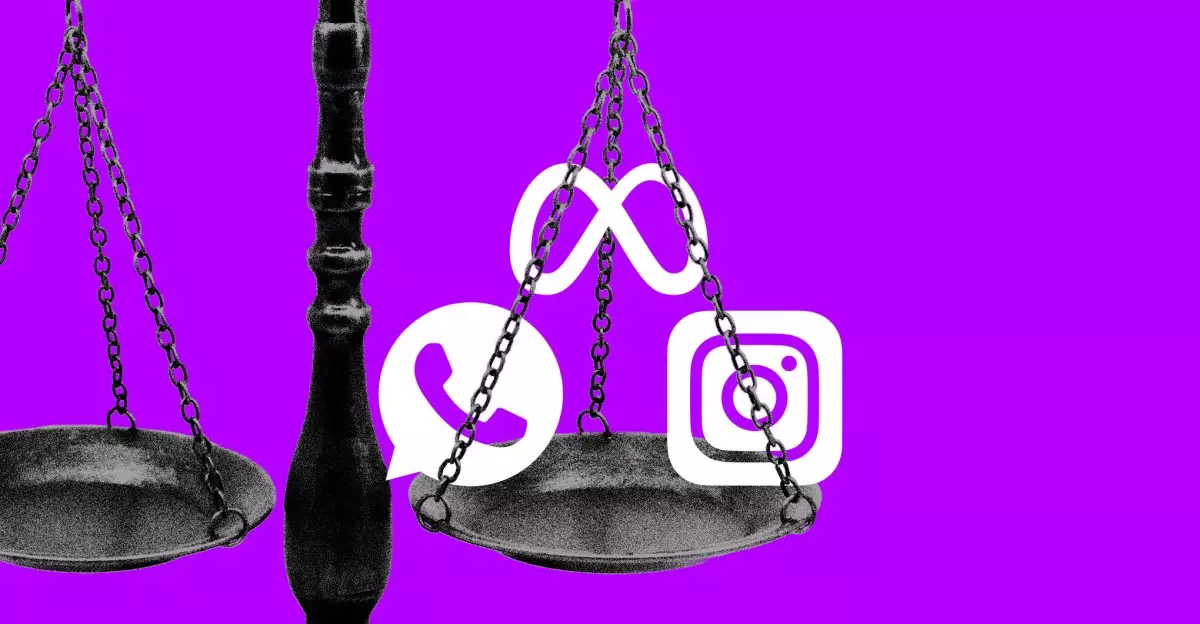The ongoing legal battle between the Federal Trade Commission (FTC) and Meta Platforms, Inc. has thrust issues of monopoly and antitrust policies into the spotlight. At the heart of this trial is Mark Zuckerberg, CEO of Meta, who has found himself in a position where he must justify acquisitions that have defined the social media landscape. Specifically, the FTC argues that Zuckerberg’s acquisition of messaging giants WhatsApp and Instagram was not aimed at enhancing their capabilities, but rather at stifling competition to cement Meta’s dominance. This notion of a “kill strategy” raises critical questions about ownership, innovation, and the responsibilities of tech giants in an evolving marketplace.
Zuckerberg’s testimony revealed a compelling narrative: he was not merely a corporate raider looking to eliminate competition. Instead, he framed these acquisitions as strategic moves designed to adapt to changing communication patterns. The argument that private messaging apps could evolve into full-fledged social networks was a real concern, and Zuckerberg contends that his motivations were grounded in a recognition of shifting user behavior, rather than in a desire to squash competition.
The Financial Justification
During the proceedings, Zuckerberg’s candid acknowledgment of paying $19 billion for WhatsApp illuminated his belief in the app’s future value. This rationale, however, is inherently complex. A competitor’s value can fluctuate significantly depending on the market context, user growth, and technological innovation. Zuckerberg emphasized that, from the onset, he perceived WhatsApp not simply as a messaging service but as a pivotal asset during a time when users were transitioning from public discourse to private conversations. His statement, “I’d do it again,” reinforces not only his conviction but also the broader implications of such investments in the tech ecosystem.
This conviction was echoed in the court, where internal documents demonstrated Zuckerberg’s prescient belief that WhatsApp would amass billions of users. The company boasts nearly 3 billion users today, a testament to the soundness of the acquisition from a business perspective. Moreover, Meta’s revenue generation through advertising related to WhatsApp and Instagram further complicates the narrative. It shows that rather than suffocating innovation, these acquisitions have driven substantial growth and transformed how Meta interacts with businesses and consumers alike.
Personal Dynamics and Corporate Growth
Yet, beneath these strategic justifications lies a more nuanced tale of personal dynamics among executives. Zuckerberg portrayed Instagram’s co-founders, Kevin Systrom and Mike Krieger, as reluctant participants in the broader vision he had for the platform. Their eventual departures after he advised them to reduce reliance on Facebook’s infrastructure hinted at underlying tensions. Zuckerberg’s goal of achieving user growth for Instagram was commendable, but it also paints a picture of a CEO attempting to steer a ship full of disparate personalities towards a united destination.
This duality of leadership—nurturing growth while imposing a singular vision—underscores the complexities of managing expansive tech companies. Zuckerberg argued that his focus on Instagram’s anti-spam measures and operational scalability supported the platform’s successful trajectory. Intriguingly, he expressed skepticism about Instagram thriving independently, a sentiment that reflects common challenges startups face in achieving market penetration without the backing of a larger entity’s resources.
Expertise in a New Era
What this trial ultimately underscores is not just a legal battle, but a reflection of the changing dynamics of power in the tech industry. Zuckerberg’s defensive stance reveals deeper industry implications: in an era marked by unprecedented digital transformation, the ability to adapt and pivot is crucial. Companies that successfully navigate these transitions often see a return on investment far exceeding initial projections.
The antitrust accusations against Meta may raise critical questions about monopolistic practices, but they also highlight the fine line tech executives walk in making bold decisions that have long-lasting impacts. Zuckerberg’s ability to shift the narrative from one of potential harm to a strategy for growth showcases a mindset that has propelled Meta into a dominant market position.
As the trial unfolds, the tech landscape remains on edge, observing how regulatory frameworks adapt and respond to the rapid evolution of digital markets. Regardless of the court’s outcome, the implications of these acquisitions will undoubtedly resonate through the industry, raising alarms about competition, innovation, and the ethical responsibilities of powerful tech players.

